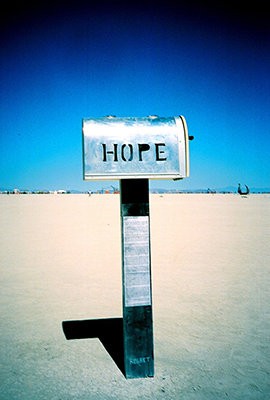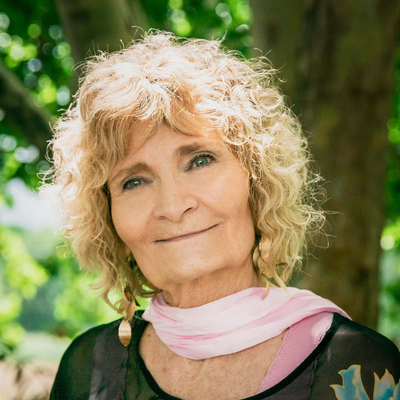I live in the “borderlands” of southern Arizona, nineteen miles north of Ambos Nogales, which is, in a manner of speaking, one town split in two: being located in two different countries (the U.S. and Mexico) and having an imposing, ugly wall of steel and swirls of cold, cruel concertina wire, meant to cause serious harm to any human who has contact with it. Needless to say, “the wall” is an eyesore as well as a heartsore for many.
Both sides of Nogales are economically depressed, and so any enterprise that can bring financial rewards is usually welcomed. Because of the current political climate, not much comes to the town(s) of Ambos Nogales, not tourists or new businesses or conventions or movie-makers, though at one time the town(s) bustled with all of these.
I think the last time Hollywood, with all of its glitter and glamour, came to Nogales was in 2012 to shoot some scenes for The Hangover III, which was released in 2013. I recall the excitement of many of the local residents to catch sight of one of the well-known actors who were on site, and even hordes of people from the city of Tucson drove seventy miles to see the movie stars. I don’t recall the hordes coming out to catch sight of the highly respected scholar Noam Chomsky when he recently moved to Tucson; most residents don’t even know who he is, let alone that he resides part of the time in their city. I am saddened by that, for Noam Chomsky offers an expansive perspective of the world’s current social, political, and ecological situation, using worldwide historical events that have led to where we, as humankind, are today.[1]
Among the U.S. population, there are still many more people who know of Hollywood actors (and all kinds of personal details about them) than even an awareness of, let alone interest in, the existence of individuals like Noam Chomsky, who are also on television, radio, and other media formats, though they are less mainstream, are often non-profit or “public,” and are definitely alternative. Like Hollywood stars, people like Mr. Chomsky have a following (though much smaller) who pay attention to the expansive and forward-looking ideas presented in his many talks and writings. The difference between him and most Hollywood stars is that Noam Chomsky is not “mainstream” in his viewpoints of the world’s situation and the route to a saner, more sustainable future for all of humankind.
The entertainment industry and sports venues—with all of the advertising that encourages unsustainable consumption—perpetuate the status-quo consciousness of materialism and selfish pursuit of instant gratification, with very little consideration for future generations and their lot on this problem-plagued earth. There are still too few entertainment films that encourage deeper, more compassionate, out-of-the-box thinking, which might lead to more creative and intelligent solutions to the political, societal, and environmental problems that threaten to end all of life on this planet.
I find it fitting that a film like The Hangover III—which promotes childish and irresponsible pleasure-pursuing that results in poor health, exploitation of others, and a continuation of the “ugly American” syndrome—was set in an area whose peoples have, for centuries, suffered the impact of European and American colonialism and, today, neocolonialism.
"If we could sniff or swallow something that would, for five or six hours each day, abolish our solitude as individuals, atone us with our fellows in a glowing exaltation of affection and make life in all its aspects seem not only worth living, but divinely beautiful and significant, and if this heavenly, world-transfiguring drug were of such a kind that we could wake up next morning with a clear head and an undamaged constitution–then, it seems to me, all our problems (and not merely the one small problem of discovering a novel pleasure) would be wholly solved and earth would become paradise."
- Aldous Huxley from his essay, "Wanted, a New Pleasure"
Every year in the United States, the controversial Columbus Day is officially celebrated as a holiday in October. Indigenous and other people in the borderlands area of Ambos Nogales do not celebrate Columbus Day in the way that many Americans do, for they recognize the fact that Columbus did not “discover” a new world that already had 100 million indigenous people inhabiting the places that he (and others) claimed for Spain (and other European nations). The late Lakota activist leader Russell Means stated that from an indigenous vantage point, Columbus’ arrival was a disaster from the beginning. Although Columbus’ own diaries indicated that he was greeted by the Taino Indians with the most generous hospitality he had ever known, he immediately began the enslavement and slaughter of the Indian peoples of the Caribbean islands. And it didn’t stop in the Caribbean but continued on into other lands. As eminent Columbus biographer Samuel Eliot Morison admits in his book, Admiral of the Ocean Sea, Columbus was personally responsible for enslavement and murder of indigenous peoples.[2] Indigenous peoples are still suffering the ramifications of colonialism that Spain and other European nations brought to the Americas, which include Latin American countries, the United States, and Canada.
In his letter to the King and Queen of Spain in 1503, Christopher Columbus stated: Gold is most excellent; gold constitutes treasure; and he who has it does all he wants in the world, and can even lift souls up to Paradise. That statement pretty much sums up what the underlying principle of colonialism is—a conquering of peoples, culture, and land with motives of greed and power, sinfully using religion as one of its tools to accomplish this.
Russell Means concurred with other non-mainstream historians that Columbus was personally responsible for the design and operation of the encomienda system that tied Indians as slaves to the lands stolen from them by the European invaders.[3] Today the “encomienda system”—in the forms of industrialization, globalization, democratization, capitalism, and so on—is implemented by the 1% (oligarchs) and their cooperating governments, enforcing military, and accommodating cultures-of-consumption that are comprised of masses of citizens drugged by materialism and selfish pursuits.
The Dictionary of Cultural Literacy defines colonialism as “the control of one nation by ‘transplanted’ people of another nation—often a geographically distant nation that has a different culture and dominant racial or ethnic group.” There are classic examples of European nations colonizing countries not only in the Caribbean islands and Americas but also in the Pacific islands, Africa, Australia, New Zealand, Asia, and India. Though there often are benefits for the people and land that have been colonized, the long-lasting, harmful effects far outweigh any good when the motive of the controlling force behind the colonization is arrogance, greed, and lust for power. Noam Chomsky, Russell Means, and other contemporary, non-mainstream scholars, philosophers, historians, economists, scientists, and theologians have documented through their writings, films, and other media the destructive impact of colonialism for generations to come.
 Interestingly, the United States of America evolved out of a rebellion against English colonialism of the new world. Unfortunately, the U.S. is one of the main proponents of neocolonialism, which is “control that is economic and cultural, rather than political”[4]—though, more often than not, there is behind-the-scenes control in the political realms of a country being “neocolonized” today. From the viewpoints of those being “colonized,” “globalized,” “democratized,” or “capitalized,” they are suffering a form of conquering, and this empire-building in their lands and nations is thievery—thievery of their land, their culture, their identities, their resources, their children, and their future.
Interestingly, the United States of America evolved out of a rebellion against English colonialism of the new world. Unfortunately, the U.S. is one of the main proponents of neocolonialism, which is “control that is economic and cultural, rather than political”[4]—though, more often than not, there is behind-the-scenes control in the political realms of a country being “neocolonized” today. From the viewpoints of those being “colonized,” “globalized,” “democratized,” or “capitalized,” they are suffering a form of conquering, and this empire-building in their lands and nations is thievery—thievery of their land, their culture, their identities, their resources, their children, and their future.
My ancestor, Ralph Waldo Emerson, realized that “an empire is an immense egotism” and was one of those voices of another century who spoke out against empire-building that was motivated by greed, selfishness, and arrogance. Frederick Douglass, who at 20 years of age escaped his own enslavement and ended up a free man in New York, became a strong, brilliant voice against the type of colonialism and capitalism that resulted in slavery with religion supporting that abomination. Soon after his emancipation from slavery, in an impassioned narrative about his own experiences as a slave, Douglass stated: The slave auctioneer’s bell and the church-going bell chime in with each other, and the bitter cries of the heart-broken slave are drowned in the religious shouts of his pious master. . . between the Christianity of this land, and the Christianity of Christ, I recognize the widest possible difference—so wide, that to receive the one as good, pure, and holy, is of necessity to reject the other as bad, corrupt, and wicked.[5]
Unfortunately, not enough has changed since Frederick Douglass’ days, though the language and forms of slavery have changed. Much of mainstream religion is not truly “Jesusonian”, and is still supportive of the status-quo way of thinking and doing, which is based on empire building of nations at the expense of most people’s health, happiness, and at times their lives, as well as the health and life of the planet’s eco-systems. Thank God for the many religionists who practice the true principles of Jesus, which basically is the brother-/sisterhood of all humanity as one planetary family under one Creator God.
Outspoken, Irish-born playwright, critic, and social reformer George Bernard Shaw once stated: In the arts of life man invents nothing, but in the arts of death he outdoes Nature herself, and produces by chemistry and machinery all the slaughter of plague, pestilence, and famine.” Today humankind has inherited the ramifications of many centuries of empire-building and colonialism that developed “the arts of death” in the never-satisfying hunger for “gold” and power. Today, that hunger continues to determine the ways of most corporations and governments, and, unfortunately, the masses have embraced those ways of thinking and doing.
Much-respected and beloved General Dwight D. Eisenhower, who helped lead the way to victory for the U.S. and its allies in World War II, made the following statement on April 16, 1953: Every gun that is made, every warship launched, every rocket signifies, in the final sense, a theft from those who hunger and are not fed, from those who are cold and are not clothed. The world in arms is not spending money alone. It is spending the sweat of its laborers, the genius of its scientists, the hopes of its children. Though this five-star general—who was a hero in a war that involved many nations of Western civilization as well as those of the Orient, with battles occurring on and over the Atlantic and Pacific Oceans—was admired enough to be elected as President of the United States, his new-found consciousness of the horrors of war and the need to make radical changes in how people perceive progress and civilization-building did not inspire and influence enough people to change the status quo in world views, progress, and problem-solving.
Today, the threat of a third “world war” is ever-present, with countries lining up with their allies for the final showdown. The intimidating military presence—peaceful or otherwise—of many of the countries with histories of imperialism (of which colonialism is a form) in smaller and less powerful countries is a fact.[6] The backlash of these smaller countries fearing occupation has led to increasing acts of terrorism and civil war on their part, which gives reason for the more powerful countries to increase their military presence for “security.”
So, as was in Christopher Columbus’ time, governments, businesses, and religions continue to make unholy alliances to promote empire-building, which has culminated in what we are experiencing today worldwide—extreme weather events and other environmental disasters, economic collapse, social upheaval, and the threat of more than just one pandemic. And, in spite of decades (even centuries) of warning of these dire ramifications from prophets, visionaries, and other non-mainstream “voices crying out in the wilderness”—such as scientists, theologians, psychologists, philosophers, economists, sociologists, educators, physicians, and so on—the madness continues.
Sadly, the ideal of democracy has been tainted by selfish materialism, lust for power, and a distortion of spiritual truths. The universal laws of God (the First Source and Center, the Creator-Parent) have been twisted to support ungodly values or ignored completely. Noam Chomsky aptly declared: In this possibly terminal phase of human existence, democracy and freedom are more than just ideals to be valued—they may be essential for survival. For so many of our planetary brothers and sisters “democracy” is “demo-crazy”, a demonstration of madness.[7]
"A chain is no stronger than its weakest link, and life is after all a chain."
- William James

In this issue of the Alternative Voice, writers point out certain aspects of global changes in the social, economic, and environmental arenas, as a result of empire-building that is not within divine pattern, but a hopeful vision of a coming Divine New Order is also presented. All of us writers live and work at Avalon Gardens & EcoVillage, which is the campus of The University of Ascension Science and The Physics of Rebellion, and adhere to divine administration principles that resonate with the pattern of the First Source and Center of All, the Gift of Life, the Divine Controller, the Infinite Upholder, the Universal Center, the Universal Father, or the Great Spirit, the Creator, God, Yahweh, Allah, or whatever other name has been given to the divine Personality who does indeed exist.[8] Those divine administration principles are based on the foundation of love—a love far beyond what we humans can comprehend fully, though we can begin to recognize, experience, and express a pattern of that divine love and principles here on earth.
Throughout the history (and “herstory”) of humankind, there have been individuals and small groups of people who have had an inkling of the pattern of divine love that dictated how they perceived reality—their world view—and how they lived within their cultures, which were more sustainable for all in their community as well as for their neighbors and the earth’s natural world around them. Not all cultures throughout history have been sustainable (including some of the “indigenous” tribes), but there have always been some, and there are those today, outside of the status quo, who live within some of those principles. And, of course, there are those individuals who struggle to live by their level of understanding of divine universal laws within mainstream society, but it is lonelier and more difficult when not united in living and working with others of similar persuasion.
In his book, The Last Hours of Ancient Sunlight, Thom Hartmann emphasizes the need for global radical change, global transformation for the leaders and the masses.[9] When our thinking changes to be more in alignment with the patterns of the Universal Father/Mother, then we transform ourselves, our technologies, our science, our politics, our economics, our medicine, our education, and our cultures. We begin to progress into the first stages of light and life that offer the opportunity for all people (100% rather than 1%) to experience true freedom, healing, health, and happiness if they choose to go that higher path.
As I strive to do daily, I encourage us all to spend more time expanding our minds and viewpoints, reading and researching in exposing ourselves to more “alternative” media as well as beginning to delve into the literature and history of the world’s many diverse and beautiful cultures, for as we begin to truly understand our planetary brothers and sisters and discover our commonalities as well as our plights and frailties, we can genuinely unite as the human race and become inspired to tackle the world’s impending problems as one global family under the one God. I wish you many blessings as you embark of this adventure of discovery, seeking unity without uniformity.
[1] For further information on Noam Choamsky visit his website at https://chomsky.info/
[2] For further information, look at the Web site: russellmeansfreedom.com and the essay “Why AIM Opposes Columbus Day and Columbus Day Parades” by Glen Morris and Russell Means
[3] Ibid
[4] The Dictionary of Cultural Literacy [E.D. Hirsch Jr., Joseph F. Kett, James Trefil, ed.] (Boston: Houghton Mifflin Company)
[5] For more information, see Frederick Douglass, William S. McFeely (New York: W.W. Norton)
[6] The Dictionary of Cultural Literacy defines imperialism as: “Acquisition by a government of other governments or territories, or of economic or cultural power over other nations or territories, often by force. (Colonialism is a form of imperialism.)”
[7] Demo-crazy is a democratic system or state considered to be inauthentic or inherently flawed; democracy that has descended into corruption, injustice, or absurdity.
[8] For more on God, the Universal Father, see The URANTIA Book, especially Papers 1 through 5 (Chicago: URANTIA FOUNDATION)
[9] The Last Hours of Ancient Sunlight has been revised and updated several times since its first publication in 1998.


